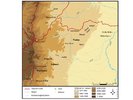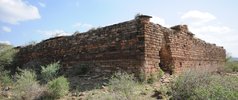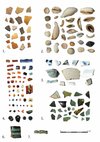16This space also appears in an itinerary handed down by the Venetian scholar Alessandro Zorzi, who, in the early 16th century, collected geographical information from Ethiopian monks and pilgrims visiting Venice, and described routes to, from and within Ethiopia. In 1523 in Venice, Zorzi interviewed an Ethiopian monk, named Anṭonyos, originally from Bugna (“Urvuar”), on his way to Portugal after a journey to India. Among all the itineraries collected by A. Zorzi, this is the only one detailing an oriental route (east-west) from the port of Zaylaꜥ to the royal camp of the Christian king Lebna Dengel, at Barārā in South Shawā:
17This “itinerary has been added later at the bottom of the page and continued in the left margin” (Crawford, 1958: 172 note 1):
18This itinerary gives precious information on Gendabelo (“Gendevelu”); this city appears as the great trading city, the breakbulk port for the caravans of the trade between the Muslim lowlands and the Christian highlands (“by this road, various things are brought from all over India”). Anṭonyos thus specifies that the goods (spices, precious fabrics) came from Cambay (“Combaia”), in Gujarat, India, transported by boat by Indian Muslim merchants, to the port of Zaylaꜥ(“Zelo”). These goods were then loaded onto camels and followed the caravan route through the sultanate of Barr Saꜥd al-Dīn. On this itinerary, the sultanate is named “Adal,” as was then customary among Ethiopian Christians (Chekroun, 2020: 132-133). But there is no doubt that it was the sultanate which controlled, as Anṭonyos explains, the port of Zaylaꜥ and the port of Berbera, as well as the large city at a 25 days’ walking distance inland that he calls “Genasere”. This city is not identified today, but it probably stood at the eastern end of the eastern high plateau of the Rift, in the vicinity of the present-day city of Harar. The area is indeed “desert and pasture for animals.” The second segment, from Genasere to Gendabelo, the longest part of the journey (40 days) probably went through the Tchertcher (“cultivated country”) to Ifāt.




